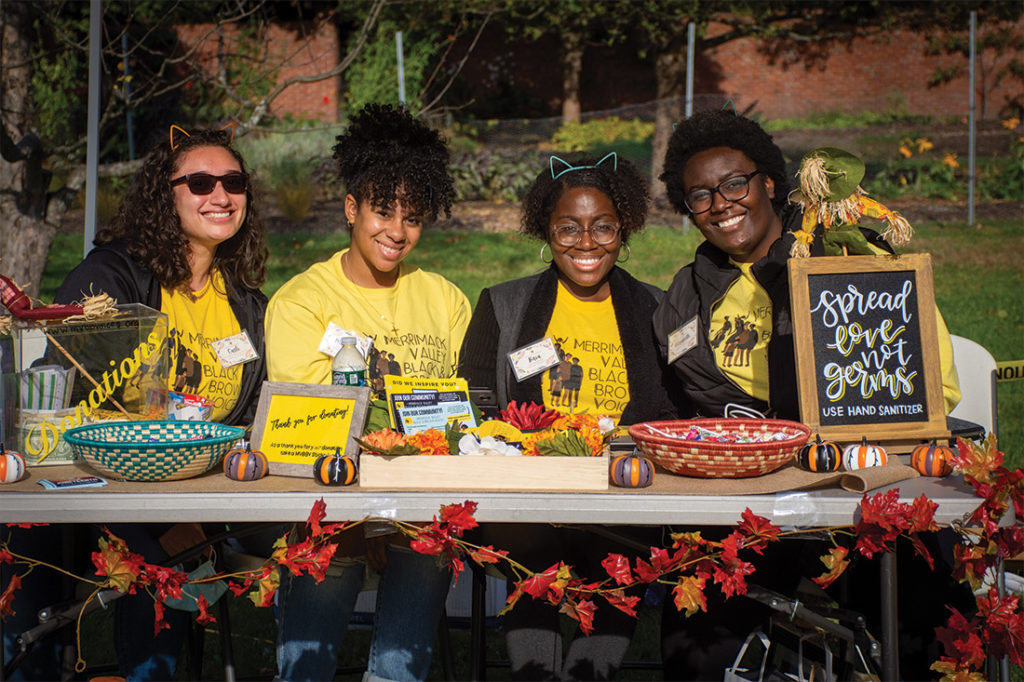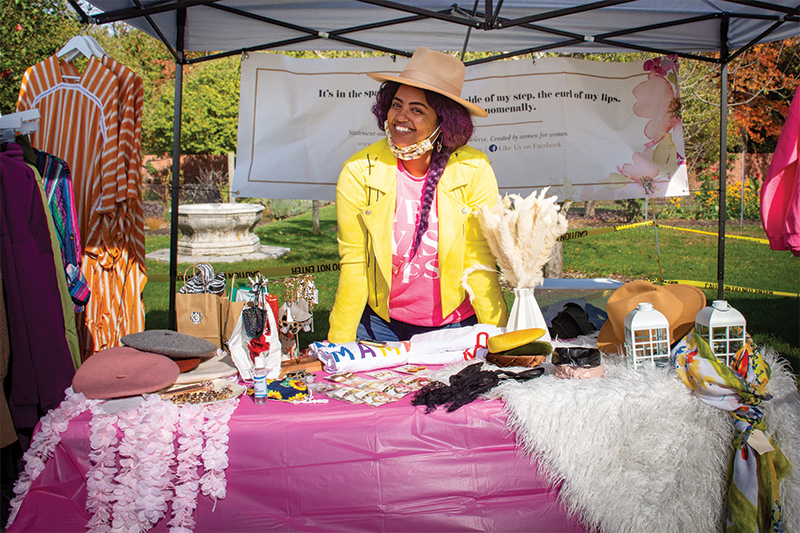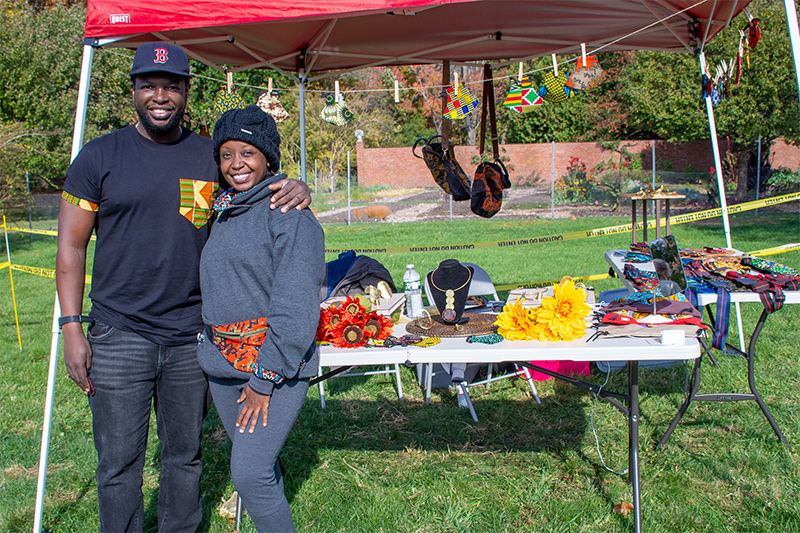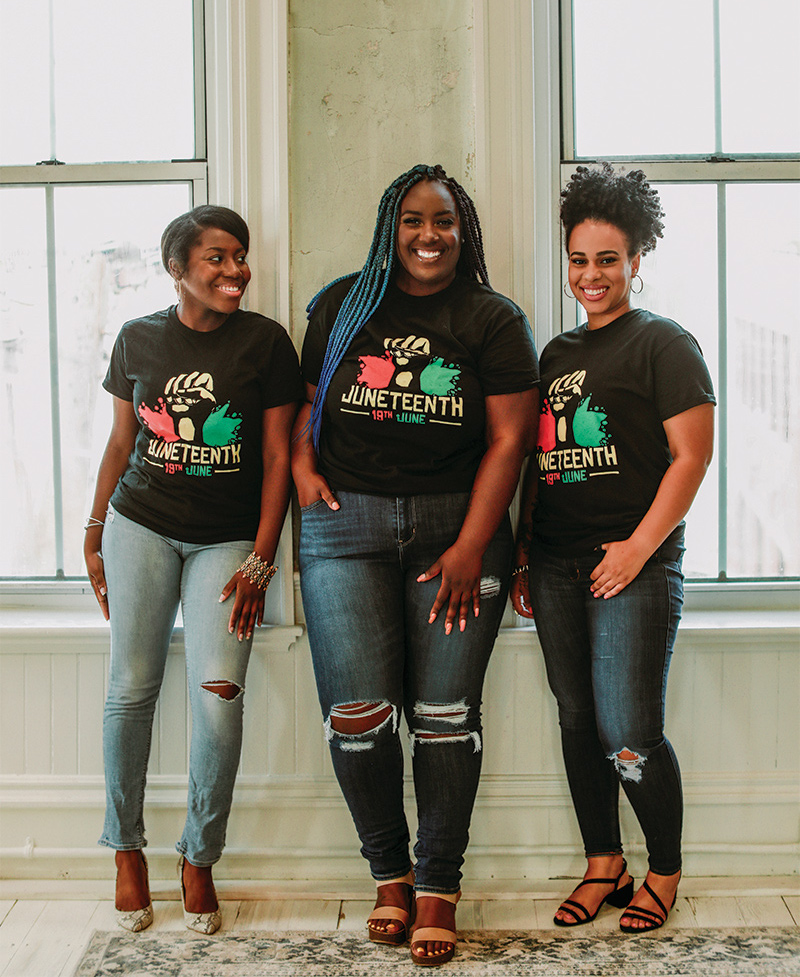Growing up in Andover, Elizabeth Walther-Grant was often the only person of color in her class at school—and sometimes the only one in her entire grade.
“I felt alone a lot of times, because I was surrounded by people who didn’t necessarily know what it’s like to live in a place where you don’t see anybody else who looks like you,” says Walther-Grant, cofounder of Merrimack Valley Black and Brown Voices, a support and advocacy organization for BIPOC (Black, Indigenous, and People of Color) on the North Shore.
Walther-Grant, who is 25, was far from the only person feeling that way, somewhat to her surprise. Scrolling through Facebook this spring, Walther-Grant came across a post written by Bria Gadsden, who moved from Boston to North Andover in 2019, talking about how it felt to be a BIPOC in a predominantly white community.
Walther-Grant had never met Gadsden, but commented on her post, as did Mayara Reis, a 21-year-old paralegal and criminal justice student who lives in North Andover. The three strangers—the only people of color who had commented on Gadsden’s post—moved their conversation to Facebook Messenger.

“I originally thought I was just gaining two new friends, to hang out with and go to movies,” Walther-Grant says. But just a week later, in early June, the three decided to launch a Facebook group exclusively for BIPOC on the North Shore, to offer a supportive community for sharing and connecting.
“We created the group because, as a kid, I needed something like this,” Walther-Grant says. “I needed a place where I could find other people like me.” Lots of people needed exactly the same thing—in just a few short months, that Facebook group has grown to more than 800 members, and spawned the nonprofit Merrimack Valley Black and Brown Voices.
“I didn’t know that there were this many people of color in our area,” Walther-Grant says, noting that in its short existence, the group has already spawned important connections. “We’ve had a lot of people tell us things like, ‘Because of this group, I found my son a hairdresser who works perfectly with his hair type,’ or ‘My son now has three new friends that he can play with.’ It definitely makes a difference.”
The Facebook group is strictly for BIPOC, intended as a space to freely share feelings without judgement. “Most of the people in our private Facebook group are professionals,” says cofounder Gadsden, who is also executive director of Love Your Menses, a Boston-based nonprofit supporting menstrual wellness for girls and young women of color. “They work in various industries as one of a few—or sometimes the only—Black or brown person. So there are not many opportunities for their voices to be heard and for people to say what is on their minds.”

While the Facebook group is unapologetically restricted, the three quickly recognized a desire from the wider community to engage in anti-racist work, and created an associated Facebook page for allies, which has ballooned to more than 2,000 followers.
Those social media connections are important, but the three women have wasted no time bringing their mission out of the virtual and into the real world, despite the challenges of the coronavirus pandemic. In June, MVBBV helped to host a socially distanced outdoor Black Lives Matter vigil at the North Andover Youth Center, and shortly thereafter, held a Juneteenth celebration and rally. Juneteenth is an annual holiday marking the end of slavery in the United States.
MVBBV is clearly filling a need on the North Shore, and it’s a challenge the cofounders have embraced wholeheartedly. “It’s been an unexpected career change,” says Walther-Grant, who also works as an esthetician and makeup artist. She says MVBBV hopes to host many more community-building events in the future, in addition to making the Juneteenth commemoration an annual celebration, especially if the pandemic retreats and allows for normal gatherings to take place.
Meantime, the organization has adapted to the times, hosting a series of outdoor marketplaces—by appointment only to ensure social distancing—featuring Black and brown-owned businesses, selling everything from skincare products and African-inspired clothing to photography and locally roasted coffee.
With the weather turning too cold for outdoor events, MVBBV will be moving that event to a virtual marketplace, accessible via their website and Facebook pages, through the spring. The organization also lists a continually updated directory of Black and brown-owned businesses on their website.

Recognizing that BIPOC are disproportionately affected by the pandemic, from shutdowns of local businesses to technology needs for kids who suddenly have to learn virtually, MVBBV has also raised thousands of dollars to support local Black and brown families in need.
“Given COVID-19, we know people are really struggling this year,” Walther-Grant says. An MVBBV technology fundraiser this fall provided backpacks full of school supplies to 30 families, and put laptops or tablets in the hands of 20 kids. At press time, a Thanksgiving dinner gift-card drive was ongoing, and plans were in the works for a holiday gift fundraiser as well.
And all of this is still just the start—the organization has applied for 501(c)(3) status, to become a tax-exempt nonprofit, and has future goals to amplify Black and brown voices in local education and politics, alongside celebrating and connecting with other BIPOC.
“We see the long-term needs of the community. There’s definitely a lot that we need to push for, and buckle down and help with,” Walther-Grant says. “We’re excited, since we’re only about five months in now, to see where this goes in the future.”
For more information, visit mvbbvoices.org.

